Sarah Chorn's Blog, page 32
July 18, 2018
Fool’s Assassin – Robin Hobb
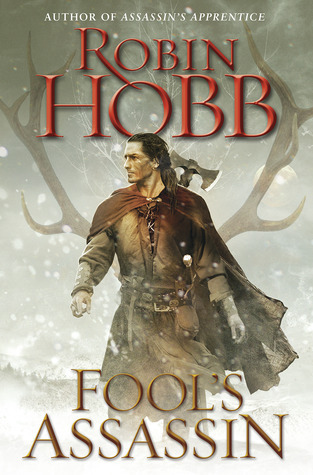 About the Book
About the Book
Tom Badgerlock has been living peaceably in the manor house at Withywoods with his beloved wife Molly these many years, the estate a reward to his family for loyal service to the crown.
But behind the facade of respectable middle-age lies a turbulent and violent past. For Tom Badgerlock is actually FitzChivalry Farseer, bastard scion of the Farseer line, convicted user of Beast-magic, and assassin. A man who has risked much for his king and lost more…
On a shelf in his den sits a triptych carved in memory stone of a man, a wolf and a fool. Once, these three were inseparable friends: Fitz, Nighteyes and the Fool. But one is long dead, and one long-missing.
Then one Winterfest night a messenger arrives to seek out Fitz, but mysteriously disappears, leaving nothing but a blood-trail. What was the message? Who was the sender? And what has happened to the messenger?
Suddenly Fitz’s violent old life erupts into the peace of his new world, and nothing and no one is safe.
688 pages (hardcover)
Published on August 12, 2014
Published by Del Rey
Author’s website
Buy the book
This audiobook was borrowed from the library. Yay libraries!
—
I finished this audiobook today, and friends, it absolutely gutted me. Before I continue on, I want to say that I listened to the audiobook, and it was fantastic. The narrator did an incredible job with different voices and inflections. He was so natural with it, I was sucked all the way into the book, and when it was over it took me a few minutes to resurface and rejoin the world. The book was amazing, but the narration really created a 1-2 punch that really bowled me over.
Now, as I said, this book gutted me. Robin Hobb books always gut me. They are routinely amazing. The woman is one of the best SFF authors out there, and there’s a reason for that. She makes the books she writes interesting, from the smallest details to the most important moments.
Fool’s Assassin is a different breed. Hobb’s books are always so full of emotion, packed with them, from the happy ones to the darker ones. This book is largely full of grief, coping, adjusting, dealing, awkwardness, frustration and the like. However, there are plenty of happier moments, plenty of moments that balance out all that angst and darkness. They are quieter, but perhaps more powerful due to that.
This book is also different due to the two different points of view, one of Fitz, and the other of Bee. Fitz is older, jaded, and reclusive. Bee was an invigorating thrust into the narrative. She’s younger, and Hobb does an absolutely incredible job at juxtaposing Fitz’s jaded, tired demeanor with Bee’s lifelike, energetic and exploratory one. The two voices really balanced each other out and gave readers two really different views into what is transpiring throughout the book.
Furthermore, much of this novel is Fitz and Bee learning how to live with each other and learning how to live without Molly. There’s struggle, and awkward moments as these two very different people get to know each other. Bee is different, and a lot of her differences aren’t realized as such by either party until revelations toward the end of the book. This just makes everything a bit more complex. As the reader, especially if you’re familiar with previous books of this nature, you understand what is happening, while Fitz and Bee both seem a little blind to it. This just makes everything all the more interesting.
One way Hobb excels is that the woman could take the most mundane moments of daily life, and make them interesting. When I think about this book, a huge chunk of it is just two people living life and learning how to live with each other after a loss. Sure, things happen. There are hiccups, conflict, resolution, evolution, transformations and all that, but so much of this is Fitz and Bee just learning how to live again and discovering each other. There’s a lot of this that is quiet, but full of intensity.
And truthfully, it says a lot about an author when she can manage to take so many of these mundane, daily, quiet moments and just make them positively riveting. I mean, I couldn’t stop listening to this book, and while a lot is happening and being built up, so much of it is subtle and background. You don’t realize how important so many of these mundane character building elements are until everything comes to a head. Furthermore, you don’t realize how the story is ramping up, how all these side plots are being conveniently laid out until the last hour or so (audiobook, remember?) when it all sort of boils over in a really intense, horrible, tear-jerking way (yeah, I had tears, damn it, and I was at work, so that was fun to explain. “Why are you crying, Sarah?” “I’m not crying, you’re crying!” ).
A lot of older characters make appearances, some in really surprising ways. Some fade out in equally surprising ways. There are new characters introduced, and old, familiar places revisited. Lots of nostalgia here, for people who, like me, love everything involving Fitz and the Fool with an overwhelming intensity.
There’s a lot I could say about this book. It’s like coming home again after a long trip and everything that makes Hobb a powerhouse author is on display here. There’s also a lot I don’t need to say. I don’t need to address what an absolutely fantastic, lyrical writer Hobb is. I don’t need to address her stunningly subtle plotting. I don’t need to talk to you about how intense and emotional her books are, or how engrossing this one is. I don’t need to say any of that.
All that really needs to be said is, Hobb is incredible, and this book absolutely ruined me in the best possible way. It gutted me. Eviscerated me. Tore me apart. Left me reeling and showed me all the reasons why Hobb is one of the best authors out there, and this book is a solid installment in any SFF reader’s library.
Have tissues ready.
5/5 stars
July 16, 2018
The City of Brass – S.A. Chakraborty
 About the Book
About the Book
Nahri has never believed in magic. Certainly, she has power; on the streets of 18th century Cairo, she’s a con woman of unsurpassed talent. But she knows better than anyone that the trade she uses to get by—palm readings, zars, healings—are all tricks, sleights of hand, learned skills; a means to the delightful end of swindling Ottoman nobles.
But when Nahri accidentally summons an equally sly, darkly mysterious djinn warrior to her side during one of her cons, she’s forced to accept that the magical world she thought only existed in childhood stories is real. For the warrior tells her a new tale: across hot, windswept sands teeming with creatures of fire, and rivers where the mythical marid sleep; past ruins of once-magnificent human metropolises, and mountains where the circling hawks are not what they seem, lies Daevabad, the legendary city of brass, a city to which Nahri is irrevocably bound.
In that city, behind gilded brass walls laced with enchantments, behind the six gates of the six djinn tribes, old resentments are simmering. And when Nahri decides to enter this world, she learns that true power is fierce and brutal. That magic cannot shield her from the dangerous web of court politics. That even the cleverest of schemes can have deadly consequences.
After all, there is a reason they say be careful what you wish for…
533 pages (hardcover)
Published on November 14, 2017
Published by Harper Voyager
Author’s website
Buy the book
This book was borrowed from the library. Yay libraries!
—
The City of Brass was a book that had been recommended to me a bunch of times, but I finally got around to reading it over the weekend. It surprised me and gave me a bit of a book hangover in the best possible way. An interweaving of Middle Eastern lore, with a tale that is all the author’s own, this one really worked for me.
That being said, I don’t think I was as overcome by the story as I probably could have been, though I was mightily overcome by it.
City of Brass tells the story of Nahri, who lives as an orphaned thief on the streets of Cairo in the eighteenth century. Things happen, and she discovers that she not only has magic but also could be a long-lost princess (kind of) of an important line that has all but died out. Inserted into this are djinn, a journey across a desert, and tons of intrigue.
In a lot of ways, this book really worked. For example, I felt instantly compelled to Nahri, and I love how the author balances out Nahri’s story with Ali’s. Both characters complement each other well, with a good dose of ignorance and naivete, but passion and both characters are sort of discovering who they are as the book progresses. Furthermore, I loved the social conflict in Daevabad and the struggles that the pureblooded and those with human blood face. The precarious balance of the society, and the very clear feeling of everything being balanced in an instant it will all break apart and chaos will reign is clear throughout.
I loved Chakraborty’s writing. Her prose flows easily, and she never wastes ten words saying what three could say. This gives the book an easy flow, a clear direction, and a directness that I really appreciated. I could focus more on the story and less on the fluff. As I mentioned above, the author mixes Middle Eastern lore with her own vision quite well here, and I think her prose really helped smooth the marriage of her real-world influence, mixed with her own imagination.
I also truly adored the sense of history. The Middle East is such an old place, and that history seems to be so intricately woven into so many aspects of life, it was nice to see that in the book, both in positive and negative ways. This wasn’t just a book that worked as the story unfolded for those who experienced it, but it also showed how events in the distant past, can shape an equally distant future, and intimately for the people it directly touches.
Furthermore, the religion is something I have to mention. I have Muslims in my family. My brother-in-law immigrated from that region, and my husband’s sister converted to the faith when they got married. They both absolutely LOVE finding books that really play on the Middle Eastern culture and history like this. More than that, they love seeing their religion in books portrayed as normal rather than abnormal or “scary” as it so often is these days. This, I guess, harkens back onto how important diversity and representation are in the books we read. I get overwhelmed and excited when I see the accurate and sensitive portrayal of disability in books. I imagine that’s how they feel when they see similar kind handed usage of their religion and culture. It is important that we see ourselves in the books we read, and if we don’t see ourselves, then we can maybe learn something from the things we do see.
Also, I’ve basically spent all weekend wanting to eat kebabs, so there is that, too.
I’ve been aching for fantasy like this, truth be told. I want something that uses other influences, other locals and cultures as the setting for the stories told. The world is such a big place, and I love it when the books I read explore that, and use it as fodder for the stories they are telling. In that respect, this book was just about everything I have been aching to read right now. It opens up another window into fantasy, into the world and a time period that I wouldn’t have otherwise, and bravo for that. That’s what our books should do, not just entertain us, but make us curious, illuminate, and expand our horizons. In that respect, The City of Brass excelled my expectations.
Now, a few things kept me back from being head-over-heels for this one. First, I thought there were some pacing issues. Some part, especially the journey to the city, felt a little stuffed full of things that didn’t really need to be there. It felt a little too long, while other parts felt a little too short.
Secondly, I kind of feel like I’ve read this general story before. Now that’s not always a bad thing, but the whole thief-becomes-princess-with-long-lost-powers thing isn’t really new. This is done in such a refreshing way that this didn’t really bother me, but the story has been told before, and I do think that could impact a reader’s overall enjoyment of it.
Third, while I truly enjoyed the romantic tension, and how relationships sort of naturally came about between characters, the book sort of devolved toward the end in predictable angst-ridden ways that, I don’t know, aggravated me, I guess.
However, while these might be a few complaints, the book as a whole really was charming to read. I loved the Middle Eastern overtones, the insertion of folklore, and the use of a culture that many of us in the West aren’t really fully exposed to. The author’s direct, beautiful prose cut to the heart of the matter, while keeping the book vivid enough for the city and the characters to come to life in my mind. As a debut work, this one was truly a joy to read, and I can’t wait to read the next in the series.
For me, a person who is rather sick of western-influenced speculative fiction, this book was like a song. It flowed well, told an artistically woven story, and if it hit a few wrong notes here or there, the song itself was so well crafted that I hardly noticed.
4/5 stars
July 10, 2018
Babylon’s Ashes – James S.A. Corey
 About the Book
About the Book
The Free Navy – a violent group of Belters in black-market military ships – has crippled the Earth and begun a campaign of piracy and violence among the outer planets. The colony ships heading for the thousand new worlds on the far side of the alien ring gates are easy prey, and no single navy remains strong enough to protect them.
James Holden and his crew know the strengths and weaknesses of this new force better than anyone. Outnumbered and outgunned, the embattled remnants of the old political powers call on the Rocinante for a desperate mission to reach Medina Station at the heart of the gate network.
But the new alliances are as flawed as the old, and the struggle for power has only just begun. As the chaos grows, an alien mystery deepens. Pirate fleets, mutiny, and betrayal may be the least of the Rocinante’s problems. And in the uncanny spaces past the ring gates, the choices of a few damaged and desperate people may determine the fate of more than just humanity.
538 pages
Published by Orbit Books
Author’s webpage
Buy the Book
This book was an Audible purchase.
—
I love The Expanse. These previous books in the series have been just fantastic and I’ve felt that each book nicely built on the previous one. This is one of those series where you need to be up-to-date before you start the new release. I will also say that the audiobooks have ruined me. I can’t read these books anymore, I have to listen to them.
Now, as I said, each book seems to be better than the last one, and in some ways, I feel like that is true here. For example, there was some superb writing in this book and some incredibly clever turns of phrase that had me stopping and making mental notes.
However, in a lot of other ways, this book was an enjoyable, strong installment to the series, but I didn’t enjoy it as much as the ones that came before. There are a few reasons for this. First, the previous books have been so action-packed, this one takes a step back. There’s action, but it’s a lot more about maneuvering, moving pieces around the board, and seeing where everyone is now that the dust is settling. This slower tempo makes sense, and it didn’t bother me, but it should be noted because it can be a reason some readers feel like this book is more of a placeholder, a book where people are being moved around for the next bit of the series, rather than a gripping book all its own.
Secondly, usually, these books are told through a tight, honed group of character perspectives. This one is told through a lot of points of view, some from previous books, some that are characters that we’ve been introduced to before but haven’t really had their own chapters yet, and our own tight crew, who also hold some limelight. Now, this was refreshing because you get all sorts of perspectives from all sorts of people on all sides of issues, but this was really what held me back from enjoying the book as much as I wanted to. There were just too many points of view. They all had important stories to tell and added nice perspectives to an incredibly complex issue that’s spanning the solar system, but there were just SO MANY OF THEM.
[SPOILER ALERT]
Thirdly, I thought the idea of Holden sending out these short videos, the equivalent of Youtube videos, about belters was a nice emotional touch, but as a plot point, it seemed kind of ridiculous. I mean, I get the logic there, but I think it was almost unbelievably naive for him to think that he could actually influence anything between belters and Earthers when both populations are so absolutely ravaged by what has come before. I mean, I get it, and I did enjoy the emotional appeal, but Earth was dying, and so were all the people on it, and I just really don’t see how videos would change/influence that at all. I mean, at that point its sort of beyond the point where short videos will humanize anyone.
[END SPOILER ALERT]
I also think that the antagonist was sort of underwhelming, falling into old patterns with very little character development, appearing to be more of a lurking creeper rather than a mastermind. He had potential, the ability to manipulate people and arrange things with ease, but he just underwhelmed me. He spent a good chunk of the book in his cabin or hiding behind the scenes. Ultimately, I found him to be rather “meh” while the story of his son was much more interesting, very well done, with his emotional conflicts painted in bright vivid colors for readers. Philip shined when compared to his father, who had tons of potential but ultimately fell a little flat.
So, this book was a horse of a different color. Lots have happened in the previous books in the series, and this one, in my opinion, was a much-needed breather, a pause between events. While events do happen, this book had a feel of pieces moving around the gameboard more than anything else. It felt like a setup for what happens next. That’s fine, and it’s a strong installment to a series I’ve fallen in love with, but it didn’t woo me quite as much as the previous ones. Bogged down by too many POVs, and some plot elements that were quaint but didn’t really hold up when a microscope is focused on them. That’s okay, though, because the core of the series is there, and it’s strong. The family I return to when I read these books is still strong, vibrant, and fantastic to read about.
More than that, though, The Expanse is about change. Changes in people, planets, governments, solar systems, ships, families, and so much more. While this book, in a lot of ways, is quieter than the previous, that core element of this series is still there, and that’s what keeps me coming back. Strong writing, a relentless forward motion, and incredible writing, Babylon’s Ashes is a good book in an incredible series, and I can’t wait to see what happens next.
4/5 stars
July 9, 2018
Starless – Jacqueline Carey
 About the Book
About the Book
Jacqueline Carey is back with an amazing adventure not seen since her New York Times bestselling Kushiel’s Legacy series. Lush and sensual, Starless introduces us to an epic world where exiled gods live among us, and a hero whose journey will resonate long after the last page is turned.
Let your mind be like the eye of the hawk…Destined from birth to serve as protector of the princess Zariya, Khai is trained in the arts of killing and stealth by a warrior sect in the deep desert; yet there is one profound truth that has been withheld from him.
In the court of the Sun-Blessed, Khai must learn to navigate deadly intrigue and his own conflicted identity…but in the far reaches of the western seas, the dark god Miasmus is rising, intent on nothing less than wholesale destruction.
If Khai is to keep his soul’s twin Zariya alive, their only hope lies with an unlikely crew of prophecy-seekers on a journey that will take them farther beneath the starless skies than anyone can imagine.
592 pages (hardcover)
Published on June 12, 2018
Published by Tor
Author’s website
Buy the book
This book was borrowed from the library. Yay libraries!
—
I’m going to put this in context for you. I started reading this book on Friday. On Saturday I had a lecture to give at a library that was thirty minutes away from my house, about editing. I was there for about two hours. Then, later Saturday night I was the photographer for a wedding. I was there for a long time doing my thing. Today, Sunday, I took the kids to the planetarium for a while, and then I had a horrible headache so the two-year-old and I took a three-hour nap. I’m saying all that to say, this book is 586 pages long, and it’s got lots of layers and texture, and I read the entire damn thing in two days that were packed full of activity and kids.
Starless is that good, folks.
I don’t even really know where to start. First of all, Carey is one of my favorite authors. I absolutely love her lush, lyrical prose. She also has a knack for making a first-person perspective book feel open, textured, and full of interesting perspective. First-person POV books tend to feel sort of closed off to me, and limited, but I’ve never encountered a Carey book where that feels true. Furthermore, I think Carey excels at it.
Starless is no different. She marches out all the hallmarks of her writing and shows off all of her strengths. This book is split into three sections. These sections are all so different they are almost their own books, but they are all related, each building off of the one before it. They belong together. The second section of the book wouldn’t mean as much to me if I hadn’t read the first section before it, if that makes sense. Anyway, the first section is our protagonist, Khai, in a training school of sorts in the middle of the desert. The second section is where Khai moves to the city to act as the shadow for the Sun Blessed that he’s been born to. The third section is where Carey takes readers on a tradition action/adventure/quest romp across a vast world that we’ve only heard bits and pieces of before.
Each section has its strengths, and I will say that I usually find training schools and boats incredibly tedious. Both themes turn me off pretty fast, but I was so absorbed in this book that I don’t think “turn off” is something that I was capable of. First of all, the training school, youth and growth first part of the book was more of a personal journey, and rather lacking in long infodumpish sections of dialogue, which I hate. This was Khai learning who he is. The second section is where we get introduced to the city and the intrigue of the royal family. The bond between Khai and his charge forms, and we get to see how both characters interact with each other and play a role in the world they’ve been born into. The third, I will admit, was my least favorite part of the book, but even saying that I have to admit that it was intense, and gripping. This is where they go on their epic adventure, and we see more of the world, and our protagonists evolve as they are tested against it.
Now, not everything about Khai is what it seems, and I have to say if you’re a reader who is interested in gender identity, sexuality, and/or disability, then you really need to check out this book. I almost hesitate to say too much here, but Khai is a girl raised as a boy, and this impacts his identity and understanding of himself and gender as a whole throughout the book. I have to say, Carey handles this really well, with grace and obvious attention to the tug-of-war that people who face gender identity question must face regarding themselves, and the world they are part of.
Now, when Khai meets Zariya, his charge, I just about came out of my skin with glee to realize that not only do we have a character who is biologically female but identifies mostly as male, occasionally (rarely, uncomfortably) female, but we also have a character with a disability. Zariya has to use canes to walk, as she suffered an illness as a child that left her with physical limitations. As a cane user with mobility issues, I’m really sensitive to how this stuff is portrayed. There are small details throughout the book where Zariya tells Khai that he has to let her do what she can, when she can. IE: Don’t help me unless I specifically ask for your help. There are moments when she has to walk up or down stairs and it’s painful and hard, and that difficulty is openly discussed.
She hopes to be cured, but she’s resigned to her disability. That’s something I acutely identify with. I’m resigned to the fact that I have Ehlers-Danlos Syndrom. I accept that it is part of me. I accept that it is chronic and degenerative. I accept that there is no cure. I hate it. I absolutely hate it, but I accept that it is part of my life, and that acute tension is very, very well done with Zariya, and her hope and her crushing disappointment, her feelings of guilt and inadequacy, and all the other emotional things that get tied up in this.
There was a part where Zariya sat down, and Khai moved to help her and she told him not to help her because “down is easier than up” and I just thought, “Good hell, Carey really researched this stuff!” mixed a bit with “THAT’S MY LIFE!” and a dash of “SHE’S GOT CANES AND SHE IS STILL A BADASS!”
And a total fistbump from this disabled woman, because it makes me feel all warm and fuzzy inside to see a badass protagonist who has to use canes to get from Point A to Point B, and all of the things that are involved with that, emotional and physical, aren’t hidden but actually openly discussed.
There’s this belief that we should ignore disabilities, especially when people care about each other. The thought seems to be, if you care about someone you don’t see their disability, but that’s really not the case. If someone cares about me, I want them to know everything I can and can’t do, so they are prepared and I am prepared as well, and Carey puts that in her book in spades. Not only regarding the disability, but also Khai’s gender identity. There’s a discussion (I put a picture of it on Twitter on Saturday), where Zariya and Khai are talking when they first meet, and she asks him something like, “Do you want me to call you he or she? I don’t want to offend you” (paraphrased, obviously) and I just wanted to high-five the universe, because these are the issues that people want to have discussed, and need to see discussed, and seeing it so open, honest, and not awkward in literature is vitally important.
People want to see themselves in the books they read, and by damn, Carey just did it for a whole lot of us.
And wow, this review has really turned into a tirade all its own, right?
I’m going to pull myself in here a bit and say that this book was amazing. It shows all of Carey’s strengths, with evocative prose, fantastic world-building, excellent character development, and all of these fantastically highlighted issues of import to so many people.
So, basically, read the damn book.
5/5 stars
July 6, 2018
Circe – Madeline Miller
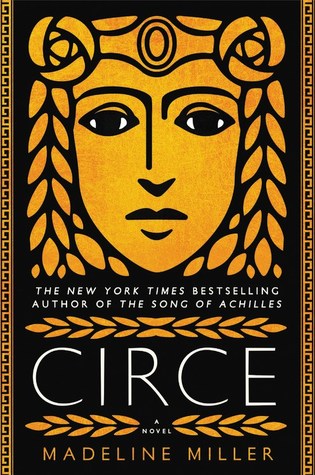 About the Book
About the Book
In the house of Helios, god of the sun and mightiest of the Titans, a daughter is born. But Circe is a strange child—not powerful, like her father, nor viciously alluring like her mother. Turning to the world of mortals for companionship, she discovers that she does possess power—the power of witchcraft, which can transform rivals into monsters and menace the gods themselves.
Threatened, Zeus banishes her to a deserted island, where she hones her occult craft, tames wild beasts and crosses paths with many of the most famous figures in all of mythology, including the Minotaur, Daedalus and his doomed son Icarus, the murderous Medea, and, of course, wily Odysseus.
But there is danger, too, for a woman who stands alone, and Circe unwittingly draws the wrath of both men and gods, ultimately finding herself pitted against one of the most terrifying and vengeful of the Olympians. To protect what she loves most, Circe must summon all her strength and choose, once and for all, whether she belongs with the gods she is born from, or the mortals she has come to love.
394 pages (hardcover)
Published on April 10, 2018
Author’s website
Buy the book
This was a library loan. Yay libraries!
—
Circe was a book I wasn’t sure I wanted to read. I’m really not into Greek or Roman mythology. I don’t know much besides the basics. It’s not that I don’t like it, it’s just not a thing that I’ve ever really enjoyed and become obsessed with. Circe is a minor goddess on the pantheon that, frankly, I’d never heard of before I saw this book bandied around and praised by a ton of people.
The reason I decided to read this is actually quite simple. I was in the mood for a book that was written with such lush prose, I’d stop and savor each word. I mean, I wanted to read a book where the writing was so beautiful it deserved to be framed. I wanted to read a book that made me stop and say, “Holy shit, I had no idea words could be used like that.”
So, I saw a bunch of people talking about Circe and decided to give it a shot.
Friends, I’m so glad I did. First of all, I learned a lot. Greek mythology is a hell of a lot more interesting than I ever gave it credit for. Secondly, the writing style was everything I was wanting to read right then. Third, that story. Holy buckets, that story!
Circe is a rather conflicted character. She’s born into a family as the oldest daughter, who is also the most unappreciated and is outshined by her zealous siblings, and her two parents, both of whom are well-known in their own rights. She’s, to me, the most human of the bunch, and suffers a lot due to that. Eventually, she discovers that she can do witchcraft, and this is seen as a threat by Zeus. She’s exiled to an island, and this was really the point where the story gets going for me.
Circe is told in an autobiographical way, the story unfolds as Circe remembers it, and it has all of the personal insights that entail. Like I said above, she is a conflicted character, and her time alone on the island is spent learning about herself and learning about the past and her childhood, her place in her family, and the world she was born into.
There’s a lot of personal discovery in these pages, and a lot of evolution. Circe spends her time alone, isolated, and learning who she is. She figures out her witchcraft and sways between the poles of her moods. In fact, she is a woman who is basically a house divided. She’s very angry and lonely, on the other hand, she’s incredibly passionate and almost satisfied with her lot in life, exiled as she is.
Intermixed with this are a few run-ins with her family, with varying results, both personally and with her relationships. While these situations are interesting, and often vibrant spots in the book that show the greater tapestry of the world that Circe exists in, it’s the quieter moments that tended to interest me more. For example, watching Circe fall in love, learn how to love. Watching her become a mother, learning the boundaries between overprotection and protection, watching her evolve as her son grew. It was these quiet moments that really intrigued me.
Eventually Circe sort of transcended her heritage and her godhood. The gods and the mysticism stopped interesting me, stopped mattering as much as the story of Circe becoming herself in a world (island) of her own creation (kind of – it’s already created but she certainly makes it hers).
So, this book was just about everything I ever wanted to read. It sparked an interest in mythology that I never really expected to have. The writing, though, and the personal, introspective, journey of Circe shucking off her heritage, and becoming who she was meant to be is stunning.
And those prose. THOSE. PROSE.
Even if you don’t like the story (which, frankly, is impossible), read this book for the prose. Savor every word.
It’s worth it. Also, if this book doesn’t get award nominations, then I’m really a turtle.
5/5 stars
July 5, 2018
Children of Time – Adrian Tchaikovsky
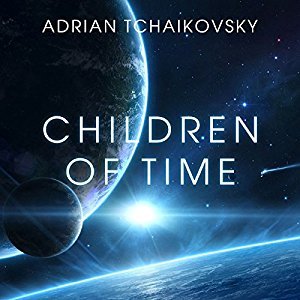 About the Book
About the Book
A race for survival among the stars… Humanity’s last survivors escaped earth’s ruins to find a new home. But when they find it, can their desperation overcome its dangers?
WHO WILL INHERIT THIS NEW EARTH?
The last remnants of the human race left a dying Earth, desperate to find a new home among the stars. Following in the footsteps of their ancestors, they discover the greatest treasure of the past age – a world terraformed and prepared for human life.
But all is not right in this new Eden. In the long years since the planet was abandoned, the work of its architects has borne disastrous fruit. The planet is not waiting for them, pristine and unoccupied. New masters have turned it from a refuge into mankind’s worst nightmare.
Now two civilizations are on a collision course, both testing the boundaries of what they will do to survive. As the fate of humanity hangs in the balance, who are the true heirs of this new Earth?
600 pages (hardcover)
Published on June 4, 2015
Author’s website
Buy the book
I procured my copy of this book via Audible.
—
I literally just finished this book about five minutes ago, but I want to write my review while it’s fresh. I’m also teaching a class on editing this weekend and I should probably plan it or something, so this might be my only chance for a little bit.
I bought this book on Audible a while ago, and it’s kind of been sitting there. I’ve seen a whole lot rave reviews of it, but I’ve been busy, and editing, and kind of burnt out on speculative fiction these past few months, so I just put it off until I was in the mood.
Well, the mood struck me recently, and I’m sincerely glad it did.
This tells the story about the last of humanity, sailing away from a dead Earth on ships, across the cosmos to find another planet they can live on. There’s two different stories of evolution happening here, one with a race of spiders on this far-flung planet, and one regarding the ravages of humanity living under the pressures of time on a ship that isn’t meant to last forever.
There are wars and strife, plague and exploration, and so much more. It is, essentially, the tale of humanity and development in a world away from our own.
It took very little time for me to become engaged in the story, though some of the characters gripped me more than others (when isn’t that true, though?). Tchaikovsky has a way of writing that is both bold and fluid, graceful and brave. He boils things down to their bare minimum and lets readers either sink or swim with that. Peppered throughout this narrative, which spans centuries, are characters who are all interesting in their own ways, with insights and experiences that help add layers and textures to this story, this evolution of sentient life that Tchaikovsky is weaving for his readers.
The benefit of this taking place somewhere far away from Earth, is that we lose all real attachment and predispositions to certain elements, like governmental structures, and lifestyles and all of that. In fact, other than it being mentioned that humanity changed, and Earth has died, and this is the last attempt to salvage the ravages of humanity, nothing is really mentioned about our home world. There isn’t really any extensive history or mind-boggling political extrapolations. Tchaikovsky made a choice to sort of start out the story where everyone was – the middle of the universe – and go from there, and I really appreciated that decision. Being cut free from anything I might already know about place and people helped me absorb the story in a much more even-keeled, appreciative way.
The story of Mason on the archsip happens in bits and bursts, as he’s often woken for important events but remains asleep for much of the downtime. Therefore, readers are allowed to see through windows into events, like the civil war, and various other battles, technical issues, and that incredible ending.
The story of Portia and her spider cohorts is told through numerous lifespans, by individuals who hold different roles in society. It’s an interesting way to do it, and their shared understandings that transcend lifespans, helps readers really see now just where they all started from, but how that accumulated understanding is bringing them into a promising future. It was interesting to see how completely different this society is, but also how similar in some ways, like the fight for representation between the sexes, for example, and the fight to understand the what and how of the universe, worship and spirituality, and so much more. It was hard to see past the fact that they are spiders, which are absolutely disgusting (I’m not a bug fan), but in some ways that made their story so much more powerful. Spiders are disgusting. There is no way that they aren’t the other in my mind, but the intricate story of their continued evolution (and that ending!) show that others might be a lot more similar than we think.
So, Children of Time essentially blew my damn mind.
I tell my authors when I edit their books “I want you to make me cry” all the time. I like it when I read a book, and I am sucked so deep into it I can’t tell where I end and where the book begins. I love it when an author tells a story that is so gripping, so powerful, I feel it down in my soul. I love it when a book emotionally eviscerates me and leaves me reeling and full of emotions and thoughts.
This, friends, is that book.
It’s deep, fantastically written, with a relentless narrative that doesn’t quit, and an ending that literally had me wiping away a few stray tears. Powerful. Beautiful. Haunting. Necessary.
Read it.
5/5 stars
July 3, 2018
Audiobook Review | Alias Grace – Margaret Atwood
 About the Book
About the Book
It’s 1843, and Grace Marks has been convicted for her involvement in the vicious murders of her employer and his housekeeper and mistress. Some believe Grace is innocent; others think her evil or insane. Now serving a life sentence, Grace claims to have no memory of the murders.
An up-and-coming expert in the burgeoning field of mental illness is engaged by a group of reformers and spiritualists who seek a pardon for Grace. He listens to her story while bringing her closer and closer to the day she cannot remember. What will he find in attempting to unlock her memories?
Captivating and disturbing, Alias Grace showcases best-selling, Booker Prize-winning author Margaret Atwood at the peak of her powers.
468 pages (paperback)
Published in December 1996
Buy the book
This book was an audiobook purchase on Audible.
—
I’ve been on a bit of a Margaret Atwood kick recently. I listened to The Handmaid’s Tale at least three times, not because I wanted to hear it over and over again, but there’s a value in studying how a master storyteller weaves her art.
Alias Grace is a different animal, but I’m discovering what Atwood’s traits are, and they shine brightly here as well as in The Handmaid’s Tale despite their differences of subject. Atwood excels at creating quietly groundbreaking characters – characters who seem to shine more inside, than outside. Grace Marks, on the surface, is just your average Irish immigrant trying to make her way in the world. It isn’t until you get into her story a bit that you realize that there is a lot under the surface, quietly lurking.
It took me a little while to get into Alias Grace, not because it’s a bad story, but because it just took some time for me to sink into the story Atwood was telling. It’s a slow burn novel. Grace doesn’t open up easily, and there are a few false starts before she feels comfortable enough to speak.
What interested me more than her story, however, was all the things that Grace doesn’t say. This seems to be another foundational element of Atwood’s writing. There’s an entire world of essential information that is never really said. Grace, for example, is eager to tell her story once she gets used to Simon, the doctor studying her mental fitness, but there are quite a few episodes of inner dialogue where Grace thinks about events that happened, things she could say, but ultimately doesn’t.
In this way, Atwood subtly weaves together a story of a woman who is a house divided. She never really tells readers what happened, whether or not Grace actually did this thing. She gives readers a plausible explanation, but it’s impossible to know if it’s real or not. Historically, Grace Marks and her trail are fertile territory for a novelist of Atwood’s skills. No one ever really knows if Grace did the crime. When she’s released from prison she just literally disappears into upstate New York and is never heard from again. The trial was sensational and made newspapers everywhere. Grace told three different versions of events.
The story is worth listening to. However, what really captivated me was how Atwood uses her stunning prose (wow, seriously) to create a character, Grace, who is basically a universe in her own right. She’s soft spoken, well mannered, and ultimately conflicted, and throughout this entire story, readers get a feeling that they are only being told half of what Grace really knows, and how much of that is the truth is uncertain. There’s very little verifiable fact, either now, or back then.
Atwood’s prose is what keeps me coming back to her work time after time. She has a way with words that makes the simplest thing, the most innocent description, just punch me in the gut and lay me out. That’s why I’ve listened to The Handmaid’s Tale so many times. Ultimately, I like the writing of that book better, but in Alias Grace we get to see how subtly Atwood can create a character and undermine her at the same time, tell a story, and make it both believable and ultimately impossible to believe at once.
So, Alias Grace is a great book. It’s an interesting story, but the real artistry here is in the incredible prose and Atwood’s absolutely incredible character development. I listened to the audiobook, and I found the narration to be fantastic. The narrator had an easy, guileless tone that made Grace’s voice really come to life.
5/5 stars
July 2, 2018
#SPFBO 2018 Introduction & Cover Art
Hello everyone!
Welcome to this year’s SPFBO. I’m doing things a little differently this time around, mostly because it’s good to shake things up. Also, I want to see if this works better or worse for me, so I know if I should do it again next year (if we do it next year) or revert back to the tried and true.
Also, you’ll get my three top cover art picks in this post. These three covers will move on to the SPFBO cover art contest. Check it out here.
Anyway, how will things be different this year?
Usually, I break these thirty titles into random groups. Each book gets a mini-review, and then each group gets a winner. I pick the overall winner out of my five finalists from each group. That book moves on to the final round to compete against nine other books to see who wins the overall SPFBO.
To be honest with you, dear reader, I’ve always felt a little constrained by the mini-reviews. Some books get a mini-review and that feels good enough for me, but others I want to elaborate on. A lot of books I want to write full reviews on. Now, my life is pure chaos. I run my own editing business. I also hold down a day job. I also write my own books. I have two kids, one of whom has a congenital kidney disorder which can rear its ugly head occasionally. I have a chronic illness and a myriad of problems that go along with that, so sometimes all I’ve got time for are mini-reviews. However, I really, really hate being limited to that, especially if it’s a book that I want to ramble on about for a while.
So, this year I’m not breaking books into rounds, and I’m not limiting these thirty entries to mini-reviews. I’m going to write full reviews of the books that I feel the desire to write full reviews on. I’ll probably write a few posts of mini-reviews. I’m not going to have ’round winners’ like I usually have in the past. This year you get what I feel the inclination to give you, along with a rating and hopefully some words you can cherrypick to use on cover art or what have you, and when I’m done saying things about all thirty books, I’ll write up a post about those books that stuck out to me, along with the book I’m sending over to the final round to fight it out with all the other finalists.
My hope is that this gives each entry more stage time, which I really do think you folk deserve, as well as more limelight and attention.
Summarized:
I’ll link each review to Goodreads, and I usually completely forget to put my reviews on Amazon, but I’ll make a concentrated effort to remember this year. So, each book will get a review (either mini or full length), links to their Amazon page and author webpage, reviews on Goodreads and Amazon, and (hopefully) pull quotes for you to use if you so choose. At the end, when I’m done with each of the thirty books, I’ll write a post about which ones stand out the most, and which book won my haul and is moving over the final round.
Dear authors, consider this your permission to pull quotes from my reviews and use them how you will.
Anyway, I’ll start dropping reviews around August 1st.
Below are this year’s entries.
Now, I’m going to admit something here. Usually, I sort of fly through the SPFBO by the seat of my pants, but this year I’m super pleased with how organized I am. I made an SPFBO desktop folder. I’ve got all the covers, book files, links to goodreads and amazon and author webpages saved in a document. I’ve got everything set up and ready to go. So, I was setting up this post thinking, “Man, this will be awesome. I’ll get all the covers up, and I’ll make it all fancy so readers can click on each cover and it’ll send them to the Amazon page and won’t that be awesome.” People, I tried, I really did… but I’ve been organizing SPFBO stuff for HOURS now, and staring at this blasted computer so long I’ve got a headache, so I’m giving up. You don’t get to click on the covers and go to any Amazon page. You just get to look at the covers and admire them.
At the end of the post, you’ll see the three covers I’m sending on to Mark for the cover art contest. I had a hell of a time picking my three to move over to the cover art contest. I have some seriously strong covers this year. You guys made this HARD.
Good luck, SPFBO-ers! You’ll start getting reviews in August!
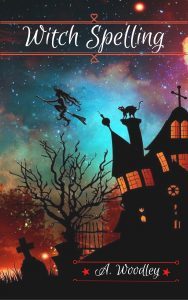
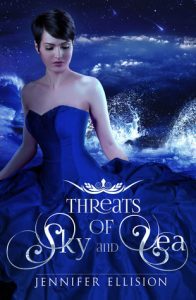
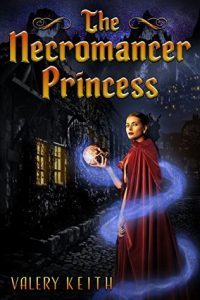
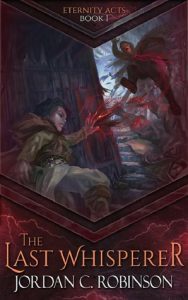
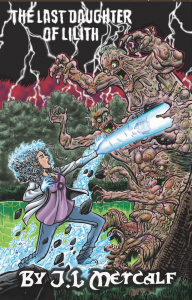
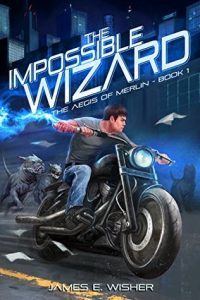
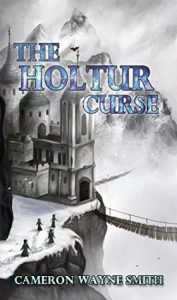
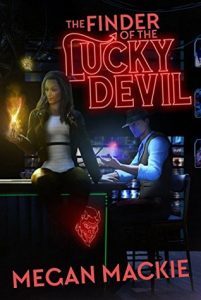
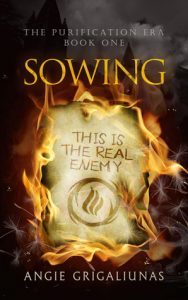
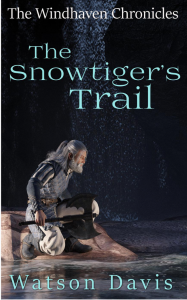
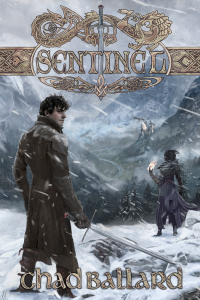
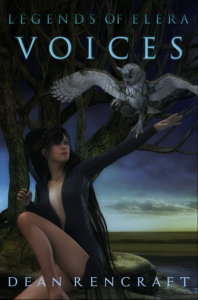
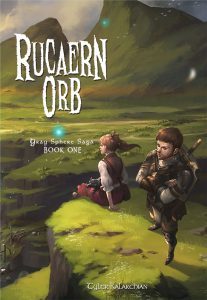
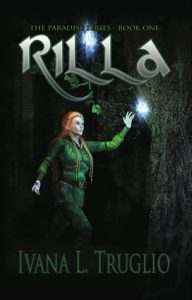
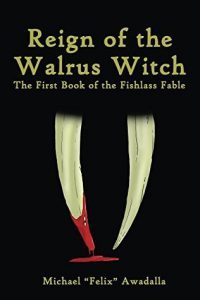
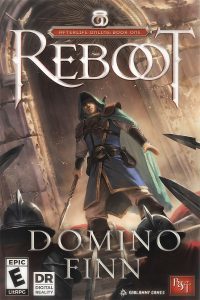
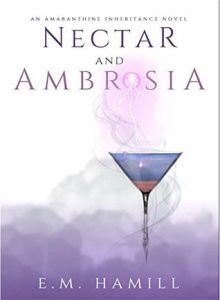
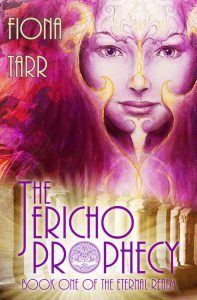
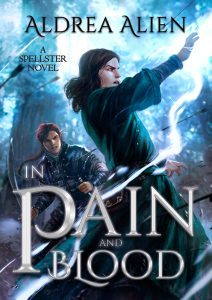
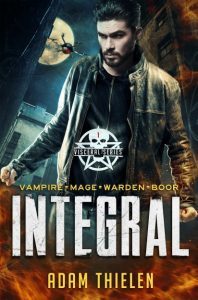
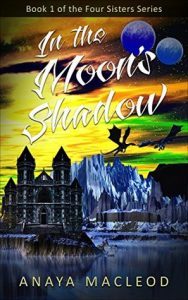
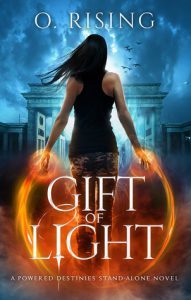
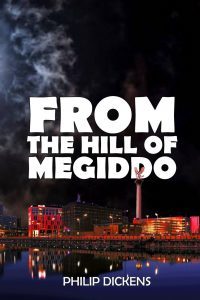
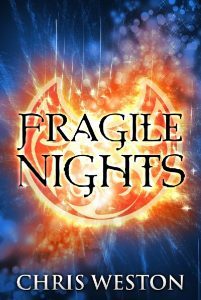
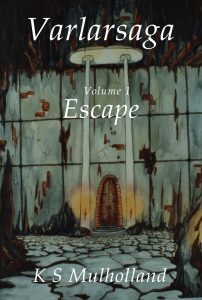
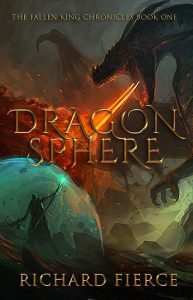
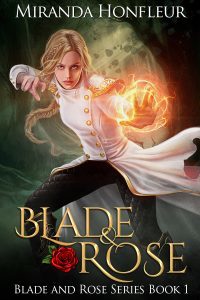
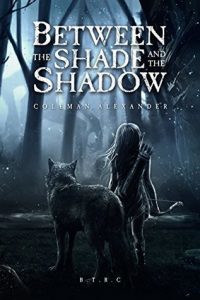
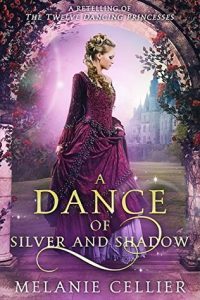
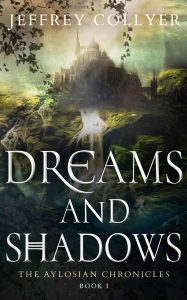
The three covers I’m sending over to the Cover Art Contest are:



June 19, 2018
The Heart’s Invisible Furies – John Boyne
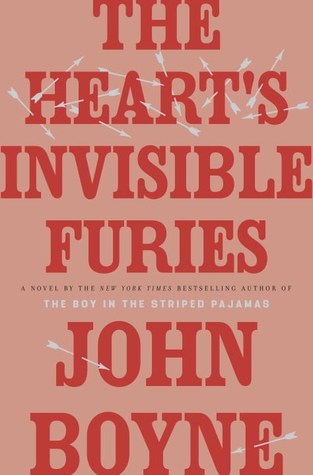 About the Book
About the Book
Cyril Avery is not a real Avery or at least that’s what his adoptive parents tell him. And he never will be. But if he isn’t a real Avery, then who is he?
Born out of wedlock to a teenage girl cast out from her rural Irish community and adopted by a well-to-do if eccentric Dublin couple via the intervention of a hunchbacked Redemptorist nun, Cyril is adrift in the world, anchored only tenuously by his heartfelt friendship with the infinitely more glamourous and dangerous Julian Woodbead.
At the mercy of fortune and coincidence, he will spend a lifetime coming to know himself and where he came from – and over his three score years and ten, will struggle to discover an identity, a home, a country and much more.
In this, Boyne’s most transcendent work to date, we are shown the story of Ireland from the 1940s to today through the eyes of one ordinary man. The Heart’s Invisible Furies is a novel to make you laugh and cry while reminding us all of the redemptive power of the human spirit.
582 pages (hardcover)
Published on August 22, 2017
Author’s website
Buy the book
This book was a library loan. Yay libraries!
—
This book ruined me in the best possible way. First, it was impossible to put down. Secondly, it made me feel emotions I wasn’t sure books were capable of making people feel. Third, when it was over I wanted to scream because WHY DID IT HAVE TO END, DAMN IT. People, I had this book hangover unlike any book hangover I’ve ever had before in my life.
The Heart’s Invisible Furies is a book taking place in Ireland in the 1940’s to roughly current days. It starts out following the protagonist’s mother, who finds herself unwed and pregnant (by the village priest). He shames her in public, and she’s kicked out of the village, and basically exiled from her family. This woman, who is young and ignorant in the ways of the world, with literally nothing to her name but a few meager possessions, decides to head up north from Cork to Dublin and see what happens, test her fate there.
Things happen, and nothing really ends up the way it is meant to. She’s an unwed pregnant woman, and that’s a big no-no in Ireland at that time. She has to fabricate a story for herself to explain away her pregnancy and make it socially acceptable. Anyway, she does this and lands a job in a tea shop with a woman who sympathizes with her plight. Eventually, she has her son, who she gives up for adoption.
At this point, the story of our protagonist starts.
Now, there are a few things you should know before we continue on. First, this story is full of personal drama. I mean, covered in it, and that little summarization of his mother’s life, which barely takes up the first forth of the book, sort of gives you a flavor for the tone of the rest of it.
Secondly, this is a book that is stuffed full of people who exist in that awkward liminal space that sort of hovers at the edge of social norms. These are people who have to live a certain way to exist in the society in which they live, but they don’t fit. At all, and that feeling of not fitting, being the shoe that is one size too small, is felt throughout the book. It’s intense. It’s raw. It’s real. And it made this book really stand out for me. I’ve read a lot of books about people who don’t fit for one reason or another, but this is probably the absolute best, emotionally jarring portrayal I’ve ever read, and that’s what makes this book unforgettable.
You see, Cyril Avery, our protagonist, has a lot of reasons to not fit. He’s adopted. His parents treat him sort of like a favorite dog or a throw pillow. He’s never really had friends until he’s older than most kids are who make friends. His adopted father is a criminal, and Cyril isn’t hidden from his criminal activities, court cases, or the like at all. His adopted mother is a writer, and she sort of floats in and out of his life on a cloud of smoke. He’s a kid who isn’t a kid, with basically no ignorance toward life, and parents who make a very clear point to constantly say that Cyril isn’t their actual son, he’s just adopted.
Aside from that, Cyril is gay and in Ireland at this time, being gay puts you in jail. You become a social pariah, you’re an outsider. You’re a reprobate. Disgusting. You won’t get jobs, or have a family anymore, or exist in the world you know at all. It’s a taint that will destroy a person.
And this, of course, really messes with Cyril. He grows up not understanding his sexual orientation, and then once he does, he has to hide it. He tries to fit in by dating women, finds no appeal in it. He has a secret love, things happen and he has to make his way in the world.
Basically, this book is following Cyril, a man who exists in that liminal space outside of social acceptance, trying so hard to be what the world wants him to be, but no matter how hard he crams himself into that box, it just doesn’t fit.
It’s raw. Emotional. Unforgettable and important. Oh, so important. There’s a lot of heartbreak in these pages, but there’s also a lot of redemption, personal and societal evolution, and an exploration of how the forces of the societies we live in can fundamentally shape a person. That being said, Cyril grows and develops, but always somehow stays true to who he is, regardless of how hard that was for him.
This book is well written, incredible, and just about the best book I’ve read in a long time.
Read it, because, holy shit guys. This is good. It’s transcendent. It’s important. It’s… just wow. I’ve been looking for a book that could absolutely floor me and friends, I found it.
5/5 stars
May 25, 2018
#SPFBO 2017 Finalist | Jack Bloodfist – James Jakins
 About the Book
About the Book
Jack Bloodfist fixes things. That’s what his card says, anyway…
When the orcs and goblins of Summervale, Virginia need something done they call Jack.
He’s the one who convinces the local PD to ignore any tribal violence. The guy who makes sure the goblins aren’t evicted whenever they do something decidedly goblin.
He does the little things that no one else is willing to do. Like handing keys over whenever a prodigal son returns, or identifying the body of said prodigal.
He’s always believed himself capable of fixing any issue his extended family needs fixed, even those they create for themselves, but when a powerful paladin comes to town and starts killing orcs, Jack may be out of his depth.
With the help of Drow detective, a reporter that is more than she seems, and a wizard with plans of his own, Jack hopes to, if not fix the problem, at least make sure it doesn’t get any worse.
That’s when the paladin’s angry god shows up with a whole army of holy knights.
All in a day’s work.
276 pages
Published on October 31, 2015
Author’s website
Buy the book
SPFBO Finalist.
—
Jack Bloodfist is an urban fantasy/noir crossover (kind of?) that was fairly short but packed one hell of a punch for its few pages. Was it a perfect book? No, but it did tell quite a story in these few pages. Have you ever read a book that just has so much in it you can’t believe it’s not a million pages long? Yeah, it’s like that.
Coming in at fewer than 300 pages, Jack Bloodfist is a regular guy, living a regular life. Some powerful Paladin comes to town and starts killing orcs, so he hooks himself up with a reporter who is more than what she seems, and members of his family to figure out who is doing what to his family. It really gets going at a fast clip almost instantly and is absolutely relentless plot-wise.
My biggest downside regarding this book is its predictability. I felt like a lot of the plot elements that were supposed to be surprising, I felt coming a mile away. Now, that’s not always a bad thing. Sometimes I like reading a book that tells a hell of a good story, even if it’s predictable. This one kind of fit into that category. Yes, it’s predictable, but it’s also a lot of fun, and I really enjoyed the characters and world building, so I ultimately felt like the predictability was forgivable.
Jack Bloodfist, as I said, is pretty fast paced and there’s a lot in these few pages. Sometimes I felt like the book got a little bogged down in itself. Sometimes I felt like it was trying too hard to be clever. Some of the jokes got a little old and worn out, tired, I guess one could say. I also felt like the dialogue felt a bit dry, and sometimes that predictability I mentioned in the plot bled into the characters, making them feel a bit two-dimensional and cookie-cutter. Predictable.
There were some plot threads, side plots, that were interesting and could potentially lead somewhere interesting in future books in the series. I did feel like this was very much the first book in a series. It’s self-contained, there is a story here all on its own, this isn’t a book that you can only read if you’re planning to read the next book, for example. If you just want to read this first book, you’re fine doing that. However, I do have a feeling like the next book in the series might be a bit more rewarding. I have a feeling it broadens a bit and plays on some of the more interesting elements that were glossed over a bit here.
I could be wrong, though. I haven’t read it yet.
There are a lot of interesting creatures in this book, most with their own twists, but they were pretty urban fantasy typical, werewolves, dwarves, wizards, etc. There were some new ones thrown in there as well, but largely I did feel like a lot of these characters have been kind of done before. They were good in the book, but nothing regarding world building that really blew me away.
So, Jack Bloodfist was a lot of fun. Predictable. The characters were great but left me wanting. This book did have me laughing quite a bit, and I enjoyed it despite its predictability. It’s short, with a plot that really gets moving pretty quick. This isn’t a book that will win any groundbreaking literary awards, but it is a book that is fun, and it does what it sets out to do really well.
4/5 stars
6/10 SPFBO stars



